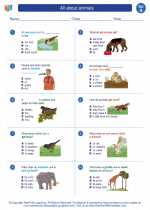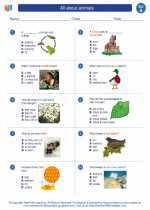Geological Time Scale
The geological time scale is a system of chronological dating that relates geological strata to time. It is used by geologists, paleontologists, and other Earth scientists to describe the timing and relationships between events that have occurred during Earth's history.
Key Concepts
- Eras: The geological time scale is divided into four eras - the Precambrian, Paleozoic, Mesozoic, and Cenozoic. Each era is characterized by distinct geological and biological events.
- Periods: Within each era, there are multiple periods that represent smaller units of time. For example, the Mesozoic era includes the Triassic, Jurassic, and Cretaceous periods.
- Epochs: Periods are further divided into epochs, which are shorter intervals of time. For instance, the Cenozoic era includes epochs such as the Paleogene and Neogene.
- Fossils: The geological time scale is constructed based on the presence of fossils in sedimentary rocks. By studying the types of fossils found in different strata, scientists can determine the relative age of the rocks and the organisms that lived during that time.
Study Guide
1. What are the four eras of the geological time scale?
The four eras of the geological time scale are:
2. How are periods and epochs related to the geological time scale?
Periods are subdivisions of eras, representing smaller units of time, while epochs are subdivisions of periods, representing even shorter intervals of time.
3. Why are fossils important for constructing the geological time scale?
Fossils provide evidence of past life forms and help scientists determine the relative ages of rocks and the organisms that lived during different time periods.
4. How does the geological time scale help scientists understand Earth's history?
By organizing Earth's history into distinct time intervals, the geological time scale allows scientists to study the sequence of geological and biological events that have occurred over millions of years, providing insights into the evolution of life and the changing dynamics of Earth's geology.
[Geological Time Scale] Related Worksheets and Study Guides:
.◂Science Worksheets and Study Guides First Grade. All about animals

 Worksheet/Answer key
Worksheet/Answer key
 Worksheet/Answer key
Worksheet/Answer key
 Worksheet/Answer key
Worksheet/Answer key
 Worksheet/Answer key
Worksheet/Answer key
 Vocabulary/Answer key
Vocabulary/Answer key
